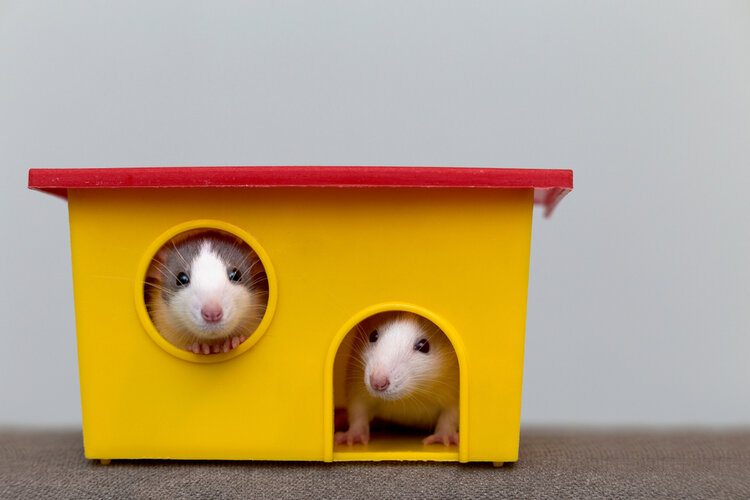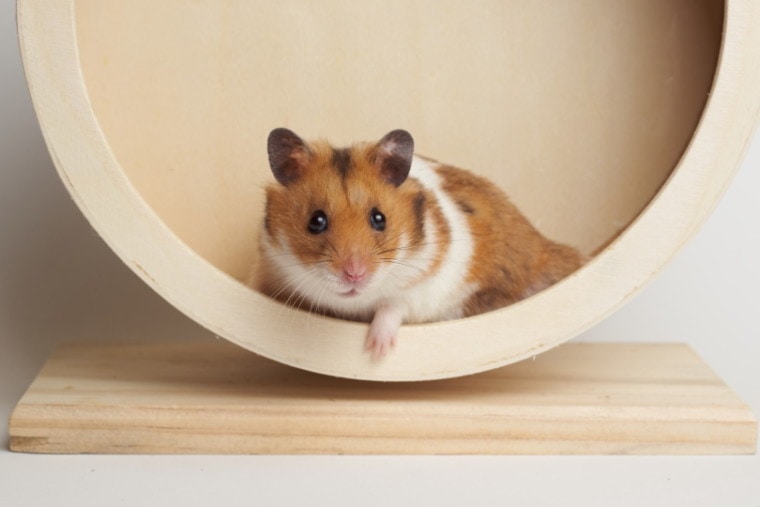
Click to Skip Ahead
Hamsters have short lifespans—typically around three years. Because their lives are short, their maturity is accelerated.
At what age do hamsters reach sexual maturity? Reproductive maturity occurs between four and six weeks, though males mature faster than females. Sexual maturity (adulthood) occurs around six months of age.
Reproductive Maturity in Hamsters
Puberty, or adolescence, in hamsters is characterized by the maturation of the hypothalamo-pituitary-gonadal axis, alterations in gonadotropin, and sex steroid levels. This happens quickly in hamsters, generally around six weeks after birth.
Males do mature faster than females, and though they may be technically mature at six weeks, females generally aren’t bred until at least 10 weeks. Breeding prior to this increases the likelihood of stillbirths. The optimum age for a male to breed is 14 weeks.
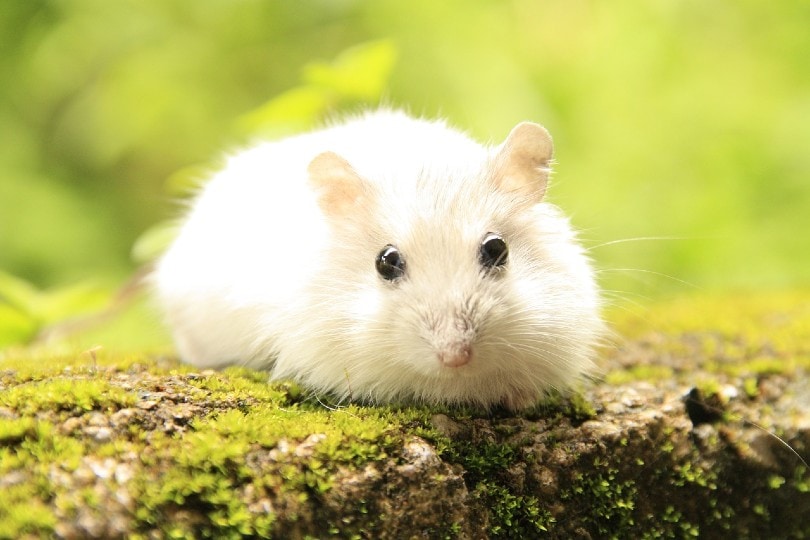
Sexual Maturity and Adulthood in Hamsters
Adulthood is characterized by sexual maturity and physiological and psychological maturity rather than simply reproductive maturity. Like humans, there is a difference between puberty and adolescence with the ability to reproduce and true maturity, which includes complete mental, emotional, and physical development.
When hamsters reach six months of age, they grow about six inches in length and weigh three to five ounces. Females are typically larger than males. Both males and females can become sterile around 12 to 14 months of age, so the window to breed is short.
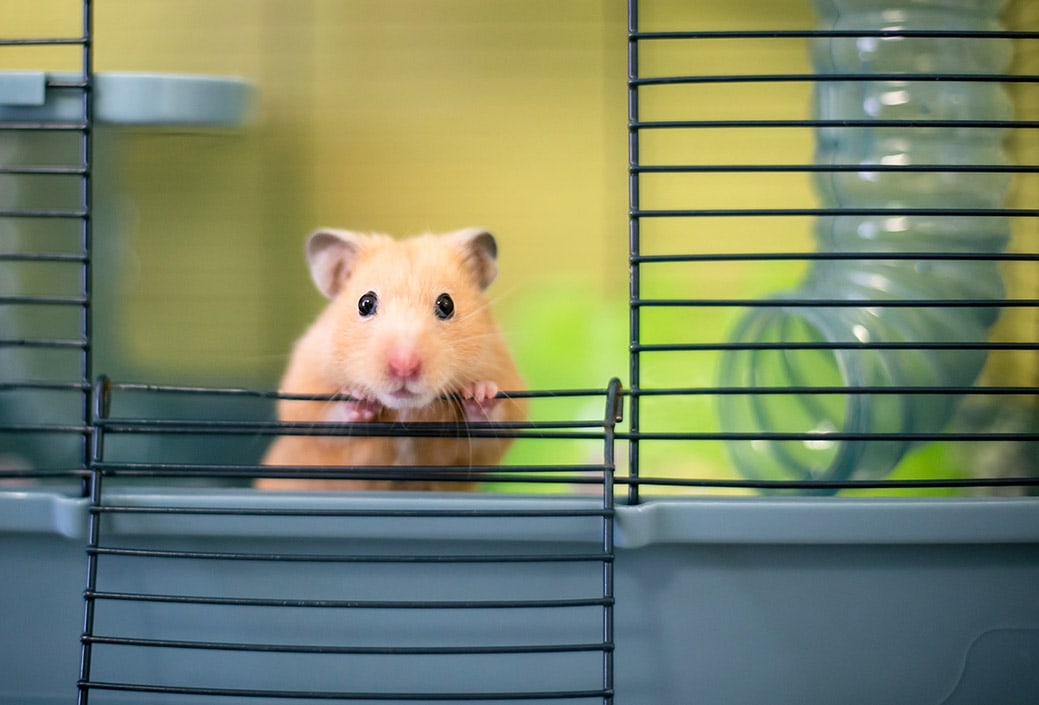
Hamster Breeding and Litters
The hamster’s gestation period lasts between 15 and 25 days, depending on the breed. Syrian hamsters, a common pet hamster, have a gestation period of 15 to 18 days, while the dwarf hamster is around 18 to 25 days.
Immediately before birth, the pregnant hamster will begin to bleed, indicating that she’s ready to deliver. Hamsters are usually capable of handling this part on their own. Depending on the breed, hamsters can have between four and 10 pups.
Baby hamsters are called “pups.” They come out pink, blind, and without fur. During this vulnerable period, they are entirely reliant upon their mothers. Within a week, they begin to grow fur and teeth, and they can see and move on their own around at two weeks old.
Pups are usually weaned around two weeks and shouldn’t be with mom past four weeks. This is a vulnerable period in which the mother may turn against them.
Hamsters can get pregnant as soon as 24 hours after giving birth, so it’s best to keep male and female hamsters separated to avoid accidental litter.

Hamster Life Expectancy
The hamster’s lifespan is determined by breed, genetics, and care, but the average lifespan is three years. Chinese hamsters and Campbell’s hamsters only live about 12 to 24 months, while the Syrian hamster lives 24 to 36 months. The hamster with the longest lifespan is the Roborovski hamster, which can live up to 3.5 years.
Some hamsters have lived longer than the average lifespan, even up to five years, but it’s rare. With good care, quality nutrition, and regular veterinary care, hamsters can live their maximum lifespan.
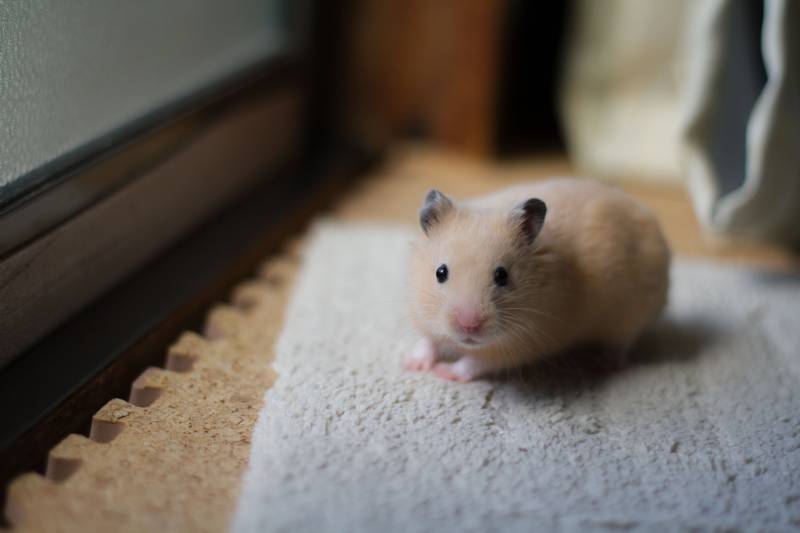
Conclusion
Hamsters have short lifespans and accelerated development, with most reaching reproductive maturity around six weeks and sexual maturity around six months. Hamsters have a short fertility window and can breed multiple times before they become sterile around 12 to 14 months.
Featured Image Credit: Johannes Menge, Shutterstock



